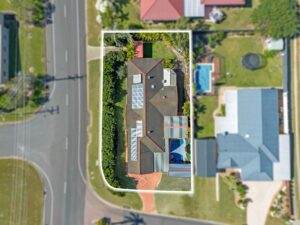This comprehensive checklist aims to provide you, the first-time home buyers with some key information to help you navigate the home buying process.
This checklist covers various aspects, excluding financial advice, to ensure a smooth and informed home buying experience:
1. Define Your Needs and Wants
– Determine your must-haves and nice-to-haves in a home.
– Consider factors like location, size, number of bedrooms and bathrooms, and any specific amenities or features you desire.
– Identify your preferences and additional features you desire, such as a backyard, garage, or specific architectural style.
2. Set a Realistic Budget
– Calculate your budget for purchasing a home, keeping in mind not only the purchase price but also closing costs, taxes, insurance, and potential maintenance expenses.
– Avoid the urge to buy a property that is priced at your maximum budget spend.
3. Choose the Right Location
– Research different neighbourhoods and communities to find the one that suits your lifestyle needs, commuter needs, and preferences.
– Consider proximity to work, schools, public transportation, and amenities.
– Investigate factors like school districts, safety, amenities, and future development plans.
4. Find a Qualified Real Estate Agent
– Seek recommendations and interview potential agents.
– Choose an agent who is experienced and trusted in the area you’re interested in and can guide you through the process.
– Choose an agent that listens to your needs and one that is committed to working for you!
5. Pre-Approval for a Mortgage
– Get pre-approved for a mortgage to know how much you can borrow.
– This will strengthen your position when making an offer and give you a clear budget.
6. Create a Home Wishlist
– Make a list of your ideal home features and prioritise them, this will help your real estate agent in finding suitable properties.
7. Attend Open Houses and Showings
– Visit homes that match your criteria to get a feel for different options; get to know the current market.
– Take notes, ask questions, and compare properties.
8. Inspect the Property
– Once you find a potential home after you have inspected it, ask to inspect it for a second time before you proceed with making an offer.
– Once you decide to make an offer, include ‘special conditions such as pest and building, electrical (for older homes), and plumbing (especially important for non-sewered properties).
9. Securing Finance and Making an Offer
– Work with a mortgage broker or lender to get pre-approved for a mortgage, ensuring that you have a clear understanding of your mortgage terms and conditions.
– Negotiate terms and conditions, including the price, closing date, and contingencies.
– Submit a competitive offer based on market related price, try and keep emotions out of your decision making.
10. Understand the Closing Process
– Familiarise yourself with the steps involved.
– Ask your agent for a timeline and what to expect.
– make sure you understand you rights such as cooling-off periods
12. Engage a Real Estate Solicitor/Conveyancer
– Engaging a professional that understands real estate transactions gives you the opportunity to have contracts reviewed so that your interests are protected.
13. Insurances
– Research and secure relevant property insurances, and compare quotes.
– Select a policy that meets your needs.
– Ensue that you have a policy in place from date of contract.
14. Plan Your Move
– Start planning your move well in advance, including hiring removalists, transferring services such as electrical accounts and animal registration details; and notifying relevant parties of your change of address.
15. Attend the Final Walkthrough
– Before closing, visit the property one last time to ensure it’s in the agreed-upon condition.
– Verify that all negotiated works or repairs have been completed.
16. Closing Day
– Make yourself readily available so that any un-planned for matters can be readily addressed as they arrive.
17. Get the Keys and Celebrate
– Once settlement has occurred, you’ll receive the keys to your new home.
– Take a moment to celebrate your achievement!
18. Post-Move Checklist
– Take the time to introduce yourself to your neighbours
– Begin any planning that you have for renovations or improvements.
19. Build an Emergency Fund
– Start or maintain an emergency fund for un-expected home repairs or expenses.
20. Enjoy Your New Home
– Take time to settle in, decorate, and make your new house a home.
Remember:
Buying a home is a significant decision, and it’s important to take your time and make informed choices throughout the process. Utilising this checklist will help you stay organized and ensure a successful transition into your new home. Always consult with your real estate agent and other professionals for guidance and advice tailored to your specific situation.









